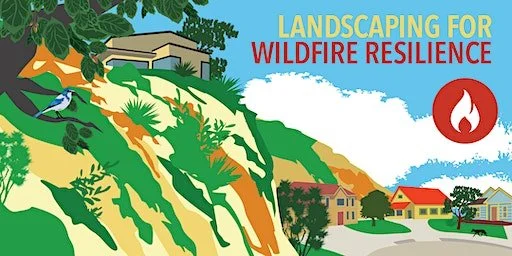In Hawaiian Paradise Park, a developer made a significant error by building a home on the wrong property—on land belonging to Anne Reynolds. Now, the developer is suing Reynolds, demanding through the court that she either pay for the value of the home or be forced to transfer her property to him to correct his mistake.
Read MoreIn a land renowned for its breathtaking landscapes and idyllic beaches, the recent Lahaina disaster has ripped through Hawaii, exposing a new vulnerability that demands a fresh perspective on disaster preparedness. While tsunamis and hurricanes have long been the focal points of disaster anticipation, the Lahaina fire has ignited a renewed sense of urgency regarding wildfire prevention. With the National Interagency Fire Center sounding the alarm for "above normal significant fire potential" across much of Hawaii, it's evident that the conversation surrounding wildfires has transformed, both locally and on a national scale.
Read MoreWildfires have an unparalleled ability to leave communities devastated, disrupting lives and shattering dreams. In such times of crisis, the idea of taking on loans might appear counterintuitive, especially for those who have lost homes, businesses, and personal belongings. However, delving deeper into the circumstances reveals that loans can provide a lifeline of hope for victims to rebuild their lives, even when they seem to have little means to repay them. A recent Civil Beat article shed light on the federal disaster relief efforts in the wake of the historic Lahaina wildfire and provides a poignant backdrop to explore why loans can be instrumental in restoring not just homes and businesses, but also a sense of normalcy and resilience.
Read MoreThe legal aftermath of the Maui wildfires has brought attention to the intricate differences between class-action lawsuits and mass tort actions. As legal professionals mobilize to aid those affected by the disaster, it's crucial to understand the unique circumstances of the Maui wildfires that could lead to the adoption of mass tort actions over traditional class-action litigation. Both approaches offer distinct benefits and challenges, reflecting the complexity of this tragic event.
Class-Action Lawsuits:
A class-action lawsuit is a legal mechanism that allows a large group of individuals with similar claims to collectively sue a defendant. The primary advantage is
Read MoreOver this past week, legal advertisements have become ubiquitous across social media platforms and television, urging those affected by the Maui wildfires – whether through injury, loss of loved ones, businesses, or property – to seek assistance. It was only a matter of time before legal professionals became involved. Attorneys often bear the brunt of skepticism, labeled as money-driven and insensitive to tragedies. While this reputation isn't always undeserved, it's essential to recognize that attorneys will play a pivotal role in navigating the complexities of this disaster.
At first glance, a preliminary understanding emerges regarding the likely sequence of events. Initial reports appear to lay blame squarely on Hawaiian Electric and Maui Electric. Allegations point toward their failure to deactivate power amidst a hurricane and secure infrastructure – issues linked to wildfires in other states.
Read MoreIn a recent court decision that has far-reaching implications for anti-LGBTQ+ discrimination, Judge Derrick Watson issued a significant ruling against the Hawaii Liquor Commission (HLC). This marks a crucial turning point in the fight against institutional discrimination and could potentially set a precedent for future cases.
A few months ago, the HLC filed a motion for summary judgment, essentially seeking to dismiss the lawsuit against it. The HLC argued that there were no material facts in the plaintiff's favor and that dismissal was warranted. However, their motion backfired significantly. Judge Watson granted the motion in part but denied it in most respects. Notably, the court's commentary was not only critical but also indicative of the seriousness of the issues at hand.
Read MoreAn International Asset Protection Trust (IAPT), also known as an Offshore Asset Protection Trust or Foreign Asset Protection Trust, is a legal structure established in a foreign jurisdiction with the purpose of protecting assets from potential creditors, lawsuits, or other financial risks. It is commonly used by individuals, families, and businesses to safeguard their wealth and maintain privacy.
The key features and benefits of an International Asset Protection Trust may include:
Read MoreAs a business owner, protecting your assets is essential to ensure the long-term success and sustainability of your business. An asset protection plan is a strategy that can help you safeguard your assets from potential legal and financial risks. In this blog post, we will explore some of the key steps involved in setting up an asset protection plan.
Read MoreIn the ever-changing landscape of the global economy, periods of growth and contraction are inevitable. Economic cycles, like the ebb and flow of tides, present us with both opportunities and challenges. While we may not have control over when a recession strikes, we do have the power to proactively prepare ourselves and our finances for the potential storm ahead.
In this blog post, we will delve into the topic of preparing for an upcoming recession. Whether you're an individual seeking to safeguard your personal finances or a business owner aiming to steer your organization through turbulent times, understanding the strategies and actions to take can make a significant difference in weathering the storm.
Read MoreDiPasquale & Summers is investigating a potential multi-million dollar scam involving bogus "vanity" awards for Best of Waikiki and Best of Honolulu. Unlike legitimate awards issued by the Star Advertiser and other reputable publications and news outlets, less scrupulous companies are engaging an a deceptive practice intended to dupe businesses out of their money, and mislead would-be customers.
The scam has been around since at-least 2013 and is only getting worse. Many local businesses are reporting that they are being targeted with “awards” that are really just money grabs.
Read MoreOn Friday, May 13, 2022, a Federal Jury returned a $3 million dollar verdict against the former owner of waikikibeachrentals.com for breach of contract, fraud and civil conversion (theft), awarding the Plaintiff over $1.5 million dollars in fraud and punitive damages.
In the case of Daniel Oliver v. Scott Merlo and WOFR LLC (Federal Court, District of Hawaii, Case No. 1:20-cv-00145 WRP), in mid-2008, the Defendant, Scott Merlo, was approached by various owners of rental condominium units at the Ilikai Hotel for advice and assistance in saving their units from potential foreclosure. To help the unit owners, Merlo
Read MoreRestaurant owners often go to great effort and expense to choose a name or logo that both fits the theme of the restaurant and that its customers will easily remember. A successful restaurant will soon develop a reputation, and the goodwill associated with its name or logo can have significant value. Besides protecting itself and its customers against knockoffs, the restaurant’s ability to protect its name will preserve its value, and therefore is important, both to its owners and to potential investors or buyers. How, then, can a restaurant owner protect the valuable reputation and goodwill in the name and/or logo from being stolen or diluted by a competitor?
Read MoreRestaurants spend huge amounts of money on special equipment and trade fixtures, such as refrigerators, stoves and ovens, to build out a space. When a restaurant space is leased, who owns these assets: landlord or tenant? Restaurant tenants should be sure to focus on this important term when negotiating a restaurant lease.
Read MoreIf you are looking to start a restaurant, you are probably familiar with McDonald’s stance that it is not a hamburger establishment, but a real estate investor. This giant corporation believes that location is more important than any other factor in determining success of a food establishment, and it is absolutely correct. When looking to start any local business, understanding the demographics and purchasing behaviors that people display among different neighborhoods can mean the difference between success and failure. This holds true, especially in the restaurant business. Don’t rule out a location just because another restaurant previously failed there. It could be the restaurant was the wrong fit for the neighborhood. A different concept at the same location could make all the difference.
Read MoreREGISTER HERE
When: Thursday, February 13, 2020 from 3:00 p.m. to 4:30 p.m.
Where: 1003 Bishop Street Suite 360, Honolulu, HI, 96813
Seminar Description: Are you tired of spending countless hours showing a property and negotiating a deal, only to have lawyers get involved and kill the transaction? How can this be avoided? This seminar is designed to help commercial real estate brokers identify problematic deal terms before their time is wasted.
Read MoreThis first of four posts will focus on central themes of franchise negotiation from the perspective of both the franchisor and franchisee.
Read MoreAs most restaurant owners know, restaurants and their employees can be liable to third parties who are damaged from patrons who consume too much alcohol at a restaurant. Because of liability like this, it is important to know how a restaurant becomes liable and what to do to avoid that liability.
1. Buying the Assets vs. Buying the Company
Buying a business can be structured as an asset sale or as the purchase of an ownership interest in the legal entity that owns the restaurant. There are critical differences between these two options which come into when dealing with the Liquor Commission, Sales Tax Department and a myriad of vendors.
Read MoreThe Fair Labor Standards Act (FLSA) has become a popular tool for the plaintiff’s bar. The FLSA is extremely technical and, consequently, it’s very easy for even the most conscientious employers to violate it. The penalties for doing so can be severe, particularly because the FLSA permits employees to band together and sue their employers in what is referred to as a “collective action.” The stakes in FLSA collective action litigation are usually quite high.
Read MoreLetters of intent can be confusing. Are they contracts? Are they binding? When should they be used? It’s important to know when to use letters of intent because they can be valuable tools that can save time and money. We receive these questions all the time, so here are some concepts that will help.
Read More



















